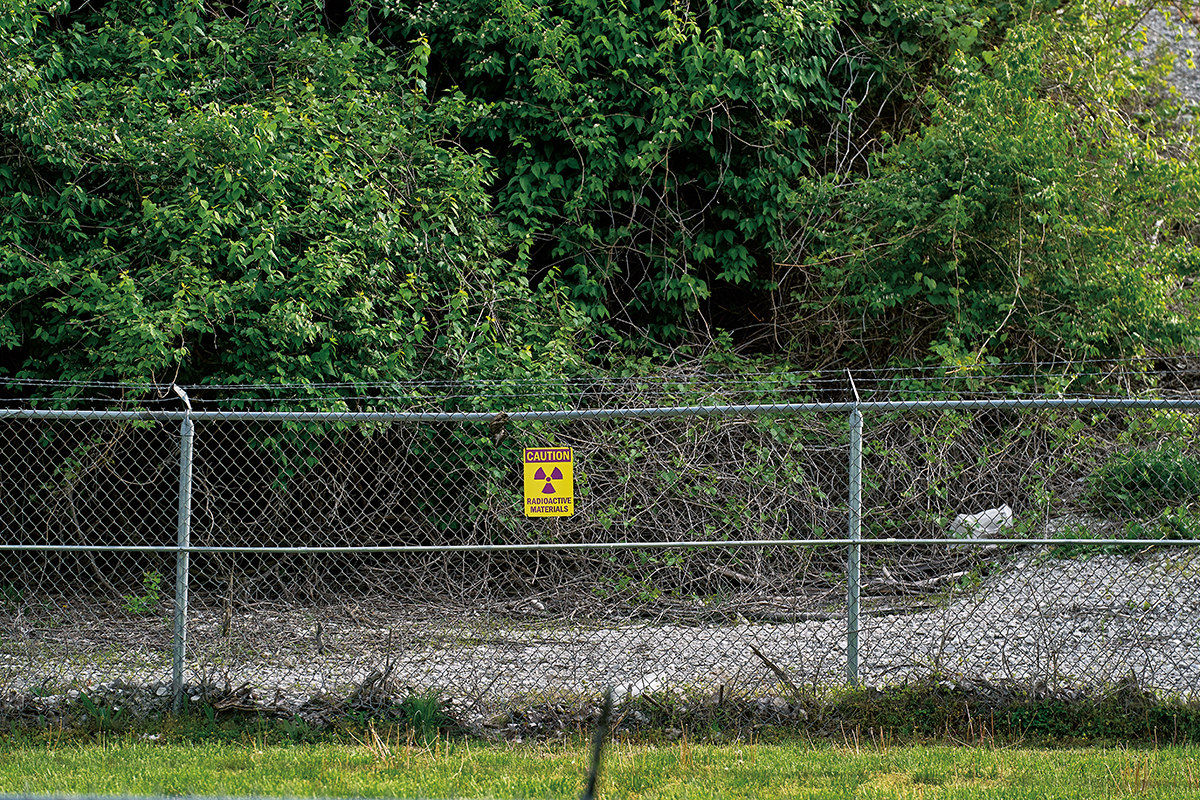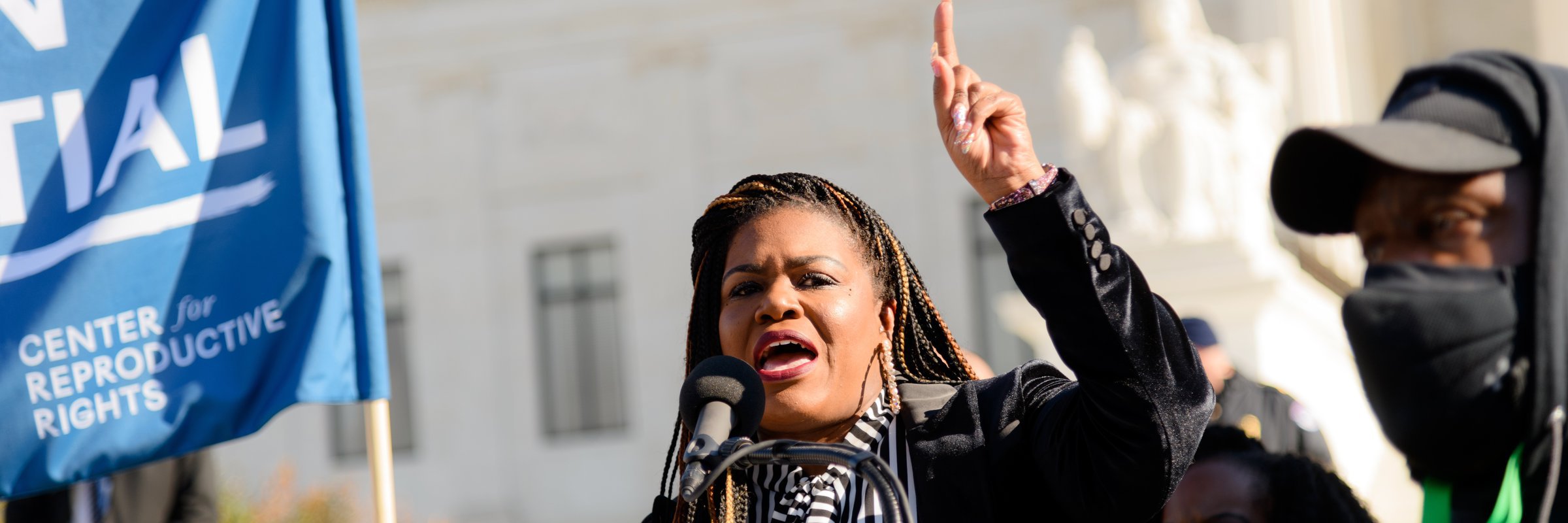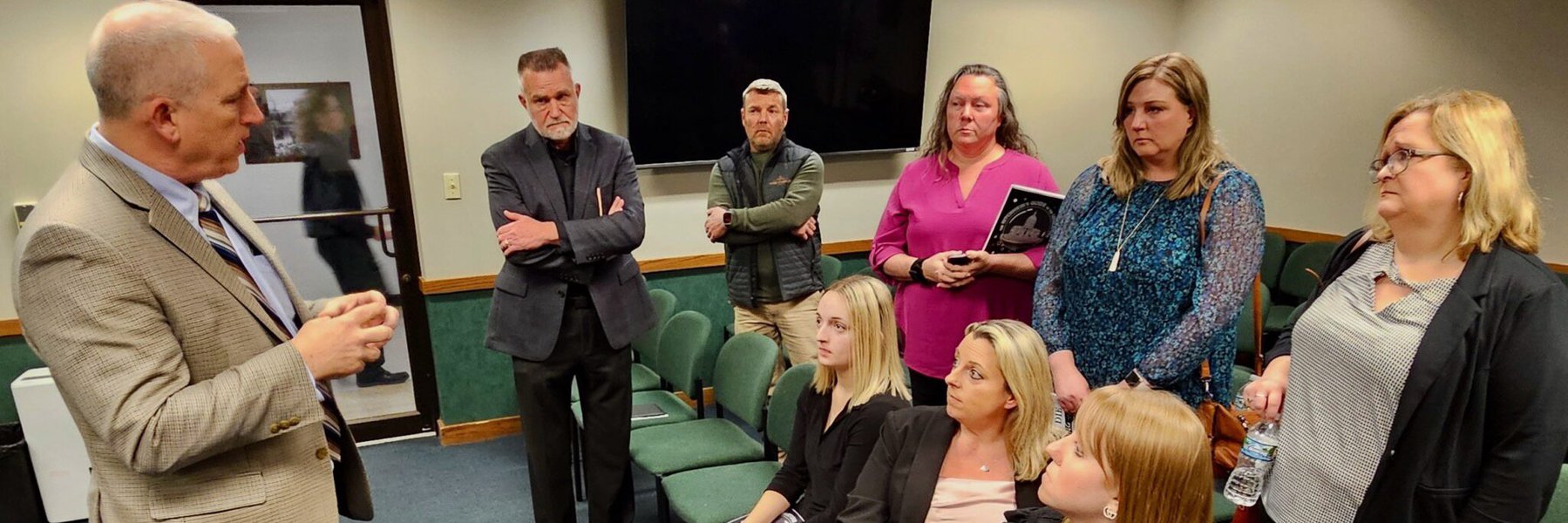The United States should not expand nuclear energy use, at least until the federal government can make up for the harms caused by previous nuclear projects, U.S. Rep. Cori Bush of Missouri said at a congressional hearing in Washington, D.C., on Thursday.
Bush cited the health problems nuclear waste has caused to many in her predominantly Black St. Louis-area district.
Bush, a Democrat who is aligned with the party’s progressive wing and serves as the ranking member on the U.S. House Oversight & Accountability subcommittee that held the hearing, said past mismanagement of nuclear plants and waste sites put communities at severe health risks — impacts the federal government hid for decades.
Bush alluded to an investigation last year by The Missouri Independent, MuckRock and The Associated Press that found private companies and the federal government for decades downplayed potential health risks of contamination in the St. Louis region.
In internal memos dating to the 1940s, they minimized health risks from exposed nuclear waste leaching into groundwater and neighborhood creeks as “slight,” “minimal” or “low-risk.” Residents in the area were never warned of the dangers.
“Records released last July showed that the federal government both hid and downplayed the risks of this radioactive waste in St. Louis for nearly 75 years,” Bush said in an opening statement Thursday.
“Action needs to be taken to remediate the damage that … has already been done before we start talking about expanding nuclear energy in this country,” she said. “We have a responsibility to both fix — and learn from — our mistakes before we risk subjecting any other communities to the same exposure.”
Nuclear waste in general has been “especially” harmful for communities of color, Bush said.
A state analysis showed that effects from radioactive waste that contaminated St. Louis’ Coldwater Creek and the surrounding area led to harmful health outcomes, Bush said.
Brain cancer and other cancers related to the nervous system were 300% more common in children in eight ZIP codes near Coldwater Creek than the national average, she said, citing a state analysis. Breast, colon, prostate, kidney and bladder cancers were also significantly more common, she added.
Bush renewed a call for a field hearing in her district to examine the issue. Her comments came at a hearing of the U.S. House Oversight & Accountability Committee Subcommittee on Economic Growth, Energy Policy, and Regulatory Affairs focused on how to further nuclear energy use.
Subcommittee Chairman Pat Fallon, a Texas Republican, said committee staff was working on Bush’s request for a field hearing, but that her concerns weren’t relevant to Thursday’s hearing.
“I think we’re talking about properly stored nuclear waste,” he said after Bush’s statement.
Nuclear power potential
Fallon described himself as “a proponent of the all-of-the-above approach where we use oil, natural gas, clean coal, wind, solar, hydro and — of course — nuclear.”
Nuclear power is among the most powerful and cleanest forms of energy available, providing more than 70% of U.S. non-greenhouse gas-emitting power, Fallon said.
Kathryn Huff, the assistant secretary at the U.S. Energy Department’s Office of Nuclear Energy, told the committee that nuclear energy should be part of the national strategy to transition away from carbon-emitting energy sources.
At the United Nations climate summit late last year, President Joe Biden and other countries committed to tripling nuclear energy capacity by 2050. Biden has requested $2.16 billion in supplemental funding for long-term enrichment programs, she said.
Huff said the government has stored and transported nuclear fuel without incident for 55 years, but acknowledged that storage and disposal of nuclear fuel could be controversial. The department would seek a “consent-based” approach to siting nuclear processing and waste sites, she said.
“But the promise of new and advanced reactors can only be responsibly realized in conjunction with progress on the long-term management of their U.S. nuclear fuel,” she said. “A consent-based approach is not only the most equitable and just way to approach siting but also represents our best chance of success.”
Nuclear waste and environmental justice

Bush told Huff that “consent is definitely a good start,” to improving the process for making siting decisions.
But she and other Democrats raised issues about the health impacts from nuclear power, especially in communities of color.
New Mexico Democrat Melanie Stansbury said the government never apologized for the effects people in her state suffered from the testing of the first atomic bomb.
“New Mexico has been a dumping ground for nuclear waste since the 1940s,” she said.
The problem of nuclear storage still troubles the state, she added.
And despite talk of consent-based siting decisions, the U.S. Nuclear Regulatory Commission licensed a nuclear facility over numerous requests not to approve the site from local, state and federal officials, she said.
“The NRC licensed a nuclear facility in New Mexico in May of last year against our dissent,” she said. “And we are not OK with that.”
The comment came after Stansbury’s five minutes for questioning had expired, and she struggled to speak over Fallon’s gavel and calls that she was out of order.
“You know what, it is out of order to dump nuclear waste in our communities,” she said.
“I agree,” Fallon responded. “But you didn’t remove one bit of nuclear waste by being out of order here.”
Ohio Democrat Shontel Brown also noted that nuclear waste sites have historically “been far more likely to be placed in close proximity to communities than their white counterparts.”
She noted the inherent health risks involved in those placements and asked Huff and Daniel Dorman, the executive director for operations for the U.S. Nuclear Regulatory Commission, how the Biden administration was handling issues of environmental justice, a movement that seeks to address the disproportionate impacts of pollution and other environmental problems on underserved communities.
Huff said the Energy Department added community benefit plans as part of the application process for grants, which provided a way “to incorporate the concerns and needs of historically underserved and Black and Brown communities.”
Dorman added that the commission has updated its longstanding objectives on environmental justice strategy and had recently updated its strategy with a focus on outreach efforts.
Photo credit: Shala W. Graham




